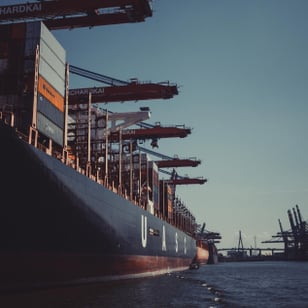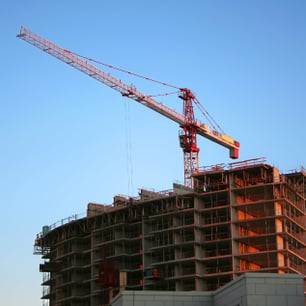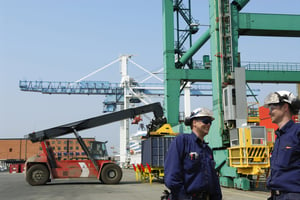Are you an owner of work equipment? Do you have employees that use lifting gear, fall protection, or other dangerous work equipment during their workday? Then you know there are plenty of strict requirements regarding security and documentation. As an employer, you have several laws and regulations to comply with. Among other things, you are responsible for:
- Certified and documented safety training
- Expert- and documented control
- The instruction manual is available
- Does your company have all of this under control? If the answer is no, then you should continue reading.
Legislation
When the employer receives new equipment, such as lifting equipment, it must be delivered with a declaration of conformity and user manuals. This should be available to anyone using the equipment. Who can safely use equipment without a proper instruction manual? For the use of lifting equipment to be as safe as possible, there is also a requirement for documented or certified safety training. This involves practical training, information, maintenance, assembly, disassembly, and transport. This needs to be available to quality inspectors, authorities, or customers, as well as those who have undergone training.
In order to ensure that no one is injured when executing the work, various legal requirements have been set up that the companies must follow. This applies, among other things, to the areas to
- Arbeidstilsynet
- Petroleumstilsynet
- Sjøfartsdirektoratet
Wrong use or lack of maintenance and control can result in injuries and serious accidents. All companies must identify and assess all hazards and problems associated with the work. The employer is responsible for this being carried out and facilitates user checks (pre-and post-user checks). This means providing, preparing, and maintaining routines and checklists for this, as well as providing adequate information and training. But it is the user’s responsibility to perform the user check.
Each company needs to elect a technical manager who has enough expertise to take care of the technical responsibility for lifting devices and lifting equipment. He/she shall also ensure that quality control is carried out and followed up. The documentation after inspection needs to be kept available for the ones who use the equipment, authorities, and quality businesses. If these requirements are not met and something happens in the workplace, it will have huge consequences for the company.
The employer, therefore, has a lot of responsibility when it comes to legal requirements, documentation, user manuals, and certificates. Many have poor routines and often they are not available to those who need them. This can have major consequences for the company and if an accident occurs, it could result in a fine or worse, a prison sentence.
Onix can help you out
Consistently comply with regulatory requirements in an efficient manner, all while cutting overall expenditures. With Onix Work, you collect all legal documentation and equipment data in one place, available 24/7. Onix Work is an all-in-one cloud-based software solution, that contributes to a safer workplace.
With Onix Work, you get to:
- Track the status and inspection dates of all your dangerous work equipment
- Receive and share data with suppliers and inspectors
- All certificates and documents in one digital program
- Automatic email notifications for multiple tasks
- Perform jobs or inspections with custom checklists and photos
- Register and follow up on issues on equipment
- Increase efficiency with RFID and QR codes.
- Reduce data transfer costs when switching inspectors or optimizing internal processes.
Our cloud-based software always covers your needs. Reach out to us to day to learn more how Onix can help you.






